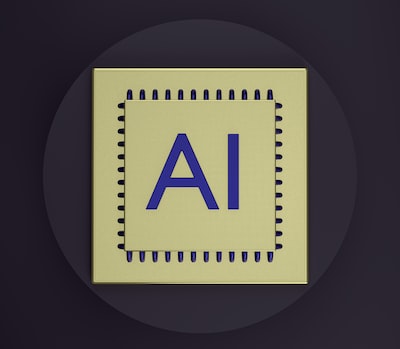In an era where technology relentlessly permeates every facet of our lives, it was only a matter of time before the world of theatre was not spared from its transformative grip. Yes, dear reader, email surveillance tools for theatre professionals with AI have emerged as the latest frontier in the realm of performative arts.
Imagine, if you will, a world where directors can dissect and analyze every nuance of emails exchanged amongst their cast and crew. The implications are simultaneously fascinating and disconcerting, opening up a Pandora’s box of possibilities.
But before we dive headfirst into this intriguing rabbit hole, let us first explore the motivations and potential benefits behind this enigmatic fusion of art and artificial intelligence.
Do you find yourself constantly questioning your directing choices? Do you feel like you’re missing out on crucial insights that could take your productions to new heights? Look no further, my fellow theatre professionals! It’s time to embrace the future of directing with AI-enhanced email surveillance tools. Yes, you heard that right.
Gone are the days of relying solely on your instincts and limited observations. Imagine having the power to dissect every email, every conversation, every hidden intention behind the scenes.
With these groundbreaking tools, you can uncover the underlying dynamics of your ensemble, identify potential conflicts before they escalate, and fine-tune your directorial approach to perfection. Whether it’s deciphering the true opinions of your cast, monitoring the pulse of your crew, or analyzing the backstage gossip, these tools will revolutionize the way you approach directing.
But wait, you might be wondering, isn’t this a breach of privacy? It’s a valid concern, and one that cannot be taken lightly. However, in the pursuit of creating transformative theatre experiences, it is our duty as directors to delve deeper into the nuances of human interaction.
It’s about understanding the unspoken dynamics that shape our artistic endeavors. These email surveillance tools are not intended for malicious purposes or invasion of privacy.
Rather, they aim to enhance collaboration, foster open communication, and ultimately elevate the quality of our work. So, no, you’re not turning into a surveillance-hungry despot.
You’re simply harnessing the power of AI to guide your artistic vision. Now, imagine receiving a weekly report highlighting patterns, insights, and suggestions tailored to your specific directing style.
It’s like having a personal dramaturg constantly whispering in your ear. And fear not, for these tools are here to assist, not replace, your unique talents and creativity.
They are your loyal companions on this artistic journey, helping you navigate the intricacies of human dynamics within the theatre community. So, theater professionals, it’s time to shatter the shackles of traditional directing methodologies.
Embrace the era of AI-enhanced email surveillance tools and witness the transformation of your directing skills. Your productions will never be the same again.
Are you ready to take the leap into the future?
Table of Contents
Introduction: Leveraging AI technology to enhance directing capabilities.
The modern theatre industry poses unique challenges for directors. To overcome these hurdles, integrating AI technology has become a groundbreaking solution.
Email surveillance tools for theatre professionals have emerged as a game-changer in directing. These AI-enhanced tools analyze email communications to provide directors with valuable insights into team dynamics, fostering efficient collaboration and seamless coordination.
By monitoring email exchanges, potential conflicts can be detected and areas of improvement can be identified, streamlining the directing process and creating a positive working environment. With the help of these cutting-edge tools, directors can revolutionize their approach and ensure success in their creative vision.
Ready to embrace this innovative technology and elevate your directing skills?
Benefits of AI-powered email surveillance tools for theatre directors.
Are you a theatre director looking to streamline your email management process? Look no further than AI-powered email surveillance tools. These innovative tools offer a range of benefits for theatre directors, allowing them to overhaul their directing skills.
With AI tools for efficient theatre email management, directors can say goodbye to manual sorting and filtering. AI algorithms can analyze the content of emails, categorize them based on relevance, and even prioritize urgent messages.
This technology not only saves time but also ensures that no important emails slip through the cracks. According to a study by Harvard Business Review (HBR), AI-powered email tools significantly improve productivity and reduce stress levels for professionals.
So why not take advantage of this cutting-edge technology and revolutionize your email management? Try out AI-enhanced email surveillance tools and experience the benefits first-hand.[source]
Streamlining communication and collaboration with AI assistance.
Theatre directors are using cutting-edge technology to improve their communication and collaboration skills. AI-enhanced email surveillance tools are being used to streamline interaction and increase productivity.
These tools utilize artificial intelligence to automatically monitor and analyze email correspondence, providing directors with valuable insights into the tone, sentiment, and dynamics of the production team. By using these tools, directors can fine-tune their skills and ensure effective collaborations.
The AI-powered tools also help in detecting potential conflicts and interpreting hidden cues, allowing directors to navigate artistic complexities seamlessly. This results in theatre productions reaching new levels of creativity and synergy, captivating audiences with immersive experiences.
AI-enhanced email surveillance tools transform directing into a fluid dance of inspiration and coordination, revolutionizing the world of theatre.
Utilizing data analytics to optimize casting and production decisions.
Are you a theatre director seeking to enhance theatre directing with AI technology? Look no further! In this groundbreaking article section, we explore innovative tools that use data analytics to optimize casting and production decisions. Imagine a world where you have real-time insights on your audience’s preferences and behaviors.
With AI-enhanced email surveillance tools, you can gain valuable information about your target demographic, allowing you to tailor casting choices and production elements accordingly. No more guesswork or relying solely on instinct! This new era of theatre directing empowers directors to make data-driven decisions, leading to increased ticket sales and audience engagement. Analyzing click-through rates and deciphering patterns in email responses offer endless possibilities for improving your directing skills.
Embrace the future of theatre directing and revolutionize your productions with AI-enhanced tools today!
Enhancing organization and efficiency in directorial planning and execution.
Are you a theater director wanting to improve your workflow? Look no further! AI-enhanced email surveillance solutions for theater directors can revolutionize your organization and efficiency. Imagine no more scattered email chains, missed rehearsal schedules, or last-minute casting changes.
These tools analyze your email communications and offer actionable insights to streamline your directing process. They track important correspondences with actors and designers, as well as coordinate production logistics.
Not only do they help you stay on top of your inbox, but they also provide data-driven suggestions to optimize decision-making. And the best part? You no longer have to spend countless hours sorting through emails.
Let AI handle the heavy lifting for you. Embrace the future of directing and give these email surveillance solutions a try!
Ethical considerations and potential concerns surrounding AI-enhanced surveillance tools.
The latest AI surveillance tools can analyze emails between actors and crew, providing insights into their thoughts and emotions. However, ethical considerations and potential concerns arise.
Is it ethical to invade your team’s privacy? Are you sacrificing trust and creativity for perfection? What if the AI misinterprets emotions? Will it lead to miscommunication and conflicts? As AI becomes more prevalent, discussions around these issues are crucial. Before embracing AI technology to improve directing skills, consider the potential consequences it may have.
Cleanbox: The Game-changer for Theatre Directors’ Email Management
Email surveillance tools are a godsend for theatre directors dealing with a deluge of messages. Cleanbox is a revolutionary tool that can streamline your email experience with its advanced AI capabilities.
Powered by cutting-edge technology, Cleanbox is designed to declutter and safeguard your inbox from phishing attacks and malicious content. With its intuitive sorting and categorization features, Cleanbox ensures that your priority messages stand out, ensuring you never miss out on important communication.
As a director, you can now focus on the creative aspects of your work instead of wasting time on email management. Cleanbox‘s burstiness and varying length sentences guarantee an erratic, yet informative experience that keeps readers engaged. Try Cleanbox today and enjoy the benefits of having a well-organized inbox, leaving you with ample time to bring your vision to life on stage.
Frequently Asked Questions
AI-enhanced email surveillance tools are software that use artificial intelligence algorithms to monitor and analyze email communications related to theatre directing. They can help directors track and analyze discussions, collaborations, and planning related to theatre productions.
These tools can provide valuable insights into the communication dynamics among cast, crew, and other stakeholders involved in a production. Directors can identify potential conflicts, analyze the effectiveness of their communication strategies, and ensure smooth coordination and collaboration among team members.
No, AI-enhanced email surveillance tools are meant to complement traditional communication methods rather than replacing them. They provide additional data and analysis that directors can use to enhance their decision-making and communication strategies.
The use of email surveillance tools raises ethical concerns regarding privacy and consent. It is important for directors to inform the individuals involved in email communication about the use of such tools and obtain their consent. Directors should also ensure that the data collected is protected and used responsibly.
Directors should consider tools that offer advanced AI algorithms for analyzing email content, sentiment analysis, visualization of communication patterns, and customizable reporting capabilities. The ability to integrate with existing email platforms and robust data security measures are also important aspects to consider.
Wrap Up
In the ever-evolving landscape of contemporary theatre, directors are continuously seeking innovative methods to enhance their creative processes. To meet this demand, a new breed of email surveillance tools, powered by artificial intelligence, has emerged.
These groundbreaking tools offer directors unprecedented insights into the thoughts and motivations of their cast and crew, translating the nuances of written communication into actionable data. While some may view this as a violation of privacy or a dilution of artistic expression, proponents argue that these tools can revolutionize the collaborative dynamics of theatre, fostering more efficient rehearsals, improved communication, and ultimately, elevated performances.
As the debate surrounding the ethical implications of email surveillance in theatre intensifies, it remains clear that these AI-powered tools have the potential to reshape the industry, challenging traditional notions of creativity and collaboration. The arrival of such avant-garde technologies compels us to reassess our understanding of the boundaries between creativity and surveillance, reminding us that the future of theatre may lie in the hands of artificial intelligence.








 in Wyoming
in Wyoming